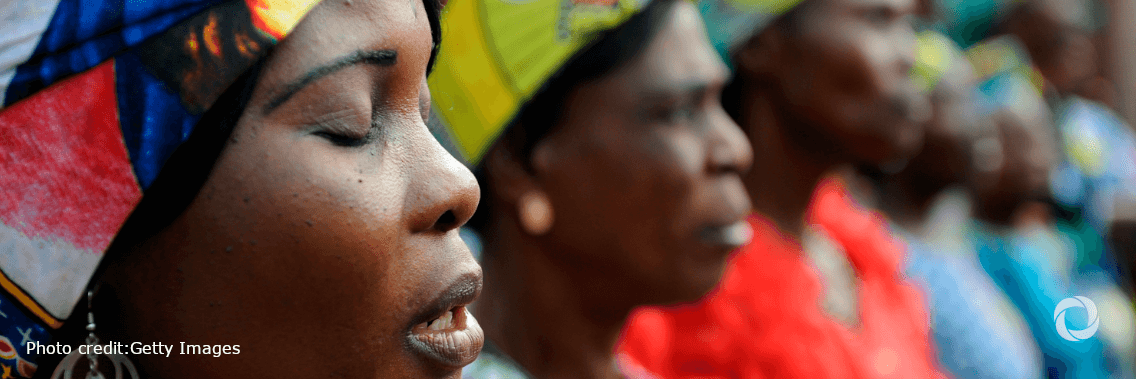With one of the world’s most protracted and complex humanitarian crises, the Democratic Republic of the Congo has more than 5 million displaced people and communities that continue to be upended by armed conflict, violence, and insecurity.
“This is not just a perfect storm of a humanitarian crisis – it goes beyond that, as the magnitude is catastrophic,” said Dr. Kanem, who has visited and listened to the needs of survivors of sexual violence. She recently assumed the role of Inter-Agency Standing Committee Champion on the Protection from Sexual Abuse, Exploitation, and Harassment, leading the UN system’s humanitarian efforts to protect the rights of women and girls.
“Women and girls are caught in the middle, paying a heavy price with their rights, their bodies, and their lives,” she said.
Overlapping crises
The Democratic Republic of the Congo is the second-largest country in Africa, and it is among the most populous and richest in natural resources. Yet 65 percent of the population lives below the poverty line.
Tens of millions of people are estimated to need humanitarian aid. Cholera, measles, yellow fever, Ebola, and COVID-19 have further aggravated the already weak health system. Currently, staggering numbers of women and girls are at risk of sexual violence and increased risk of maternal morbidity and mortality.
These complex layers of overlapping crises require many collaborative efforts to address the vulnerability, including those to empower women and support their rights. “We are looking at humanitarian interventions that pave the way for the longer-term objectives of advancing human rights and gender equality, building social cohesion, and sustaining peace,” Dr. Kanem said.
“As the carrier of the torch for justice and peace for all young women and girls – and not just in the Democratic Republic of the Congo – we have to look into three priorities: bolstering our mechanisms; improving victims’ access to quality assistance and information; and strengthening our coordination and cohesion.”
Lighting the way forward
Throughout Dr. Kanem’s visit, women sobbed as they shared their stories – one appalling tale after another. Their experiences were united by a common thread: each of the women had experienced sexual violence. But they were not passive victims; they were emboldened and calling for change.
Together, the women recommended ways to help minimize the risk of sexual abuse and exploitation, such as improved access to services and better accountability during the distribution of non-food items. They called for distributing and monitoring food more efficiently; involving women, girls, and persons living with disabilities in distribution committees; and providing access to micro-credits for small-scale businesses. They insisted that aid groups consult with women on the construction and securing of water points to reduce women’s exposure to attack.
The recommendations also included the distribution and monitoring of cash aid, as well as additional financial empowerment programs to help purchase menstrual hygiene products and other essential items, which would help women avoid infections and survival sex.
Dr. Kanem promised to bring these proposals, and stories, to the highest levels. “From this day forward, I carry with me your recommendations. This will be our torch to light the way to making a safe place for women and girls.”

